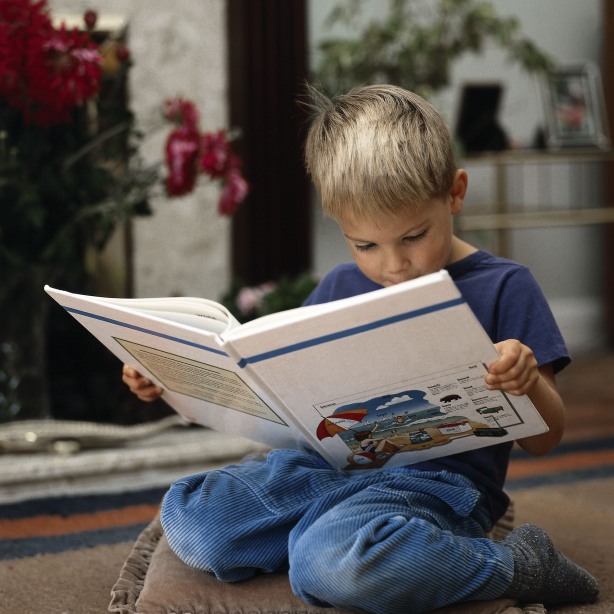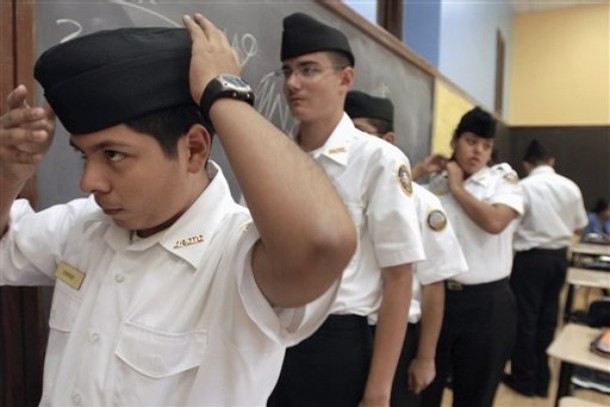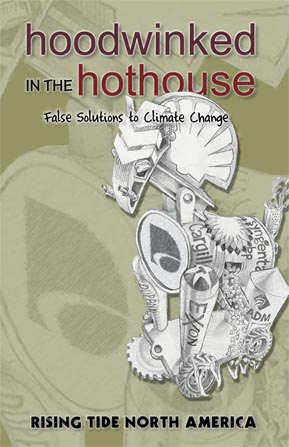Busy parents put baby’s nose to the grindstone
Michelle Epstein
Sydney Morning Herald
Are we a nation obsessed with educating our children? Do we really believe that a child should be subjected to formal learning during as many waking hours as possible? Everything these days is about learning. It is squeezed into messages, games, songs, TV programs and cereal boxes. We just want to provide our children with the very best … or do we?
I’m beginning to wonder if there is an unconscious motive at play. Are we increasingly finding new ways to obviate our responsibility as parents – and feel good about it?
I recently saw the Wiggles on TV. There was Dorothy and Wags playing giddy-up horsies in the backyard. This content was clearly aimed at toddlers and preschool children. Suddenly, Dorothy talked about seeing a plane soar and poor Wags wondered why the plane was sore. Had the plane been hurt? Next thing you know, Dorothy was giving an intensive seminar on homophones. Does anyone really think that children under four need to know about homophones? My daughter tells me she learnt about them in year 6.
Perhaps the Wiggles have sensed that what parents want is educational content. Clearly there are other shows that have traditionally provided quality TV for this genre. Take Play School – age-appropriate learning in among a lot of fun. But what I was seeing here was age-inappropriate learning that was barely concealed as an interruption to the fun. This clumsy attempt at what is now known as “early learning” was patronising, contrived and annoying. What ever happened to Hot Potato Hot Potato?
Don’t get me wrong. I don’t blame the Wiggles. They are such nice boys; who could blame them for anything. They are just responding to the message out there. They are just trying to give parents what they want. The question is: what is this thing parents want? More importantly, why do they want it?
I’m not suggesting parents are actually asking for anything. However, something has evolved without us noticing. The zeal to provide quality education for our children in those formative years has combined with the ever-increasing need for parents, and especially mothers, to come up with more creative ways of being superwomen.
The demands of being wife, mother, housekeeper, P&C activist and career woman have become the all-time mother of necessity. How can we find time for all these roles? Parents find themselves increasingly dumping kids in front of the TV or farming them out. We end up with a seething mass of guilt-ridden parents with a real dilemma on their hands. Magically, research starts to surface telling us that getting a good education in the early years optimises the chances that children will reach their full potential. Politicians, parents and educators start to take note and there are efforts to improve early learning opportunities. This is good, but somehow the idea has run amok.
At my local shopping centre, I often pass by an early learning centre. As I watch mothers wheel their tiny infants though the front door, I can’t help thinking: what can a newborn possibly learn? Not much. And certainly not for so many hours. It cannot be denied that it feels better dropping your infant off at a place called “early learning centre” than a place called “long day care”.
Kate Ellis, the Minister for Early Childhood Education and Childcare, recently announced initiatives that recognise early child care as part of a child’s formal education. High quality national education programs are to be rolled out. Just as “quality time” can be a euphemism for not spending enough time with your child, the National Quality Agenda seeks to set less parental involvement in stone with legislation. Don’t stay at home with your baby. Send them to early child care for a better education. Of major concern is that even so-called “play-based learning” is the slippery slope. Where there is formal learning there is also formal testing. Now homework and preparation for the HSC can start at birth.
Whatever happened to kids having fun? Why must play be so purposeful? Why must fun even have an agenda? I don’t think this is what Julia Gillard and Kevin Rudd had in mind when they spoke of an education revolution.
Dr Michelle Epstein is a clinical psychologist.










 Only a few years ago, some companies were saying climate change wasn’t a problem. Now, as its impacts become apparent, many of the same corporations are suddenly scrambling to claim leadership on the issue. Desperate to avoid regulation that may hit their profits, they present a dizzying array of “false solutions,” quick fixes that perpetuate inequalities in our society while they cash in on the crisis. Upon closer examination, many of these technologies and policies are merely dangerous detours on the road to a just, livable planet, distracting us from the root causes of the crisis.
Only a few years ago, some companies were saying climate change wasn’t a problem. Now, as its impacts become apparent, many of the same corporations are suddenly scrambling to claim leadership on the issue. Desperate to avoid regulation that may hit their profits, they present a dizzying array of “false solutions,” quick fixes that perpetuate inequalities in our society while they cash in on the crisis. Upon closer examination, many of these technologies and policies are merely dangerous detours on the road to a just, livable planet, distracting us from the root causes of the crisis. Sustainability has been a core value for a small number of people for a long time and now even businesses are getting into the act. But, if you want to change the world you need to start in the schools.
Sustainability has been a core value for a small number of people for a long time and now even businesses are getting into the act. But, if you want to change the world you need to start in the schools.![Reblog this post [with Zemanta]](https://i0.wp.com/img.zemanta.com/reblog_e.png)